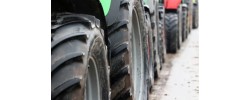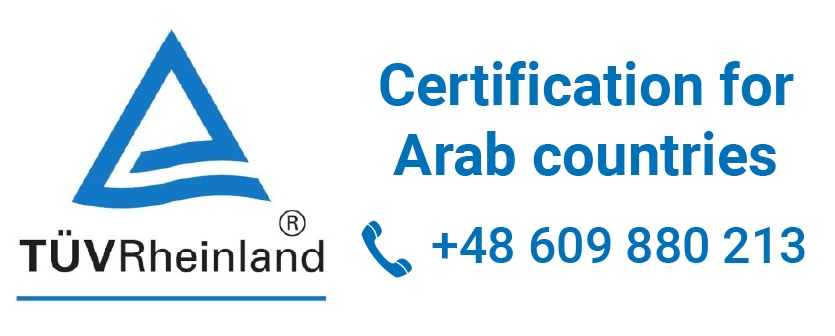International Transport of Agricultural Machinery
International transport of agricultural machinery is a crucial aspect of the global agricultural sector, impacting the efficiency and development of farms worldwide. In an era of globalization and increasing demand for agricultural products, appropriate machinery is essential for all types of crop and livestock production. As a result, the need for specialized machinery from various parts of the world has grown. Due to the unique nature of this equipment, which is often exceptionally large, heavy, and requires specific transport conditions, moving it across countries becomes a logistical and legal challenge. This process involves detailed planning and the engagement of specialized carriers who have the experience and resources necessary to safely deliver the equipment to its destination. Agricultural machines such as tractors, combines, seeders, balers, and sprayers play a key role in enhancing agricultural productivity, so their proper transportation can significantly impact work quality and harvest timeliness.
The choice of an appropriate mode of transport is crucial in the international transport of agricultural machinery. Given the size and weight of these machines, road, sea, and rail transport are the most commonly used methods. Road transport is mainly used for shorter distances or as a complementary method in door-to-door deliveries. Carriers often use specialized trailers, such as platforms or low-bed trailers, which are adapted to carry oversized loads. Sea transport becomes necessary for transcontinental deliveries of large machinery or when the destination country is on another continent. Sea transport is more economical for long distances and allows for the transport of large quantities of equipment at once. Many agricultural machinery manufacturers, especially in Europe, Asia, and the Americas, rely on this form of transport, particularly when exporting machinery to developing countries where the demand for modern agricultural equipment is rising.
During the transport of agricultural machinery, it is essential to consider various international regulations and specific regulations of the sending and receiving countries. Many countries have strict regulations concerning the transport of oversized loads, which requires transport companies to obtain special permits and adhere to specific safety standards. Additionally, regulations may include the need for load escort vehicles on certain road segments or transport during specific hours to minimize traffic disruptions. In the case of sea and air transport, it is necessary to pay attention to customs regulations and documentation requirements. Some countries may impose specific restrictions related to environmental protection, as well as require transport companies to meet certain emissions standards or recycling requirements for packaging materials.
Another challenge in the international transport of agricultural machinery is the proper securing of the equipment during transit. Agricultural machines are often complex mechanical devices equipped with precise components and delicate electronic systems that can be damaged during transport. Therefore, load security is crucial to maintain functionality. Various techniques are used to secure the machines, such as using straps, locks, or special protective containers to minimize the risk of load shifting and damage. Proper securing also involves protection against weather conditions, as agricultural machinery is often exposed to moisture, high temperatures, or wind during sea transport. Additionally, on longer routes, equipment may require special air conditioning or ventilation systems to maintain appropriate operating conditions for sensitive components.
The importance of proper transport of agricultural machinery also increases due to the diversity of machinery types and their specific needs. The requirements for transporting smaller equipment, such as seeders or sprayers, differ from those for larger machinery, such as combines or tractors. Combines are among the most challenging agricultural machines to transport due to their size and weight, so their transport requires special precision and care. Transporting combines usually involves the dismantling of some components, such as headers or cabins, which are then transported separately. Dismantling reduces the overall height or width of the machine, which is essential in the case of road or rail transport. However, this process involves additional costs and requires skilled personnel who reassemble the machines upon arrival, making them ready for operation.
Another essential aspect of international transport of agricultural machinery is insurance. Due to the high value of these machines and the risk of damage during transport, cargo insurance is necessary. Transport companies offer various types of insurance policies that cover basic risks of mechanical damage as well as more comprehensive insurance covering damage caused by external factors, such as adverse weather conditions. In some cases, insurance may also cover losses due to delivery delays, which is crucial for agricultural businesses that often need machinery during specific seasonal periods. Delivery delays can have serious consequences, especially for crops that require timely activities such as sowing, fertilization, or harvesting.
It is also important to consider the costs associated with international transport of agricultural machinery. These costs depend on many factors, such as the type of machinery, the distance to the destination, the choice of transport mode, and additional costs related to load security or obtaining permits. Although sea transport is more economical when transporting large quantities of equipment over long distances, it may involve additional port fees and waiting times for loading and unloading. In the case of road transport, costs may increase due to charges for transporting oversized loads, as well as fees associated with escorting. Another important factor is the impact of fuel costs and variable economic conditions, such as oil price fluctuations or customs tariffs, which can affect the total transport cost.
International transport of agricultural machinery is a complex, multifaceted process that requires consideration of numerous technical, logistical, legal, and economic factors. Choosing the right transport mode, complying with international regulations, securing the cargo, and ensuring insurance are key elements that determine the success of the entire process. This transport is essential for the global agricultural sector, as it provides access to modern machinery that enhances agricultural production efficiency. In an era of increasing food demand and rapid technological development, international transport of agricultural machinery plays an increasingly important role, supporting farmers worldwide in their daily work.
- Road transport
- Transport Technology
- Logistics, Forwarding, Warehouses, Customs clearance
- Sea, rail and air transport
- TSL - Information worth attention
- Oversized loads
- Transport Europe - key transport directions
- Transport Scandinavia. Transport to Scandinavia
- Transport Balkans
- Transport Asia, transport to Asia
Oversized loads
International Transport of Agricultural Machinery

Source: https://www.poland-transport.eu

See also:

Transport from to Serbia. Transport Poland Serbia
Freight transport to and from Serbia plays a key role in European trade, connecting Poland with the Balkans and Southeastern Europe. Serbia, situated on key transport routes, plays an important role as a transit hub.

Transport to Hungary. Transport between Poland and Hungary
Transport to Hungary is an important segment of the international transport market, connecting Poland with Central and Southern Europe. What are the biggest challenges related to the organization of freight transport between Poland and Hungary?

Transport to Latvia. Transport to and from Latvia
The most popular form of transport is road transport to Latvia, which guarantees great freedom of action and a relatively quick delivery time. Thanks to the close distance between Poland and Latvia, deliveries can be made even within one day

Transport Switzerland. Transport Switzerland to and from Switzerland
Transport companies handling transport from and to Switzerland guarantee fast and safe delivery of goods, using an extensive network of roads and motorways in both directions. It is Polish carriers that effectively carry out freight transport to Switzerland

Transport Austria. Transport to and from Austria
Transport to and from Austria is an important, and sometimes even key, segment of international logistics, aimed at ensuring efficient exchange of goods between Poland and one of the key countries of Central Europe, i.e. Austria.

Transport to and from Spain. Transport Spain
Polish transport companies transport meat, dairy products, cereals, and fruit and vegetable products to Spain
Help needed ?
If you have not found the desired freight, an available truck or a suitable transport and forwarding company, or the search results are not satisfactory for you, do not hesitate to write to us to tell what you are looking for. We will send your inquiry directly to transport companies.
Write to us

 pl
pl  en
en  de
de  es
es  fr
fr  it
it  pt
pt  ru
ru  sv
sv 







